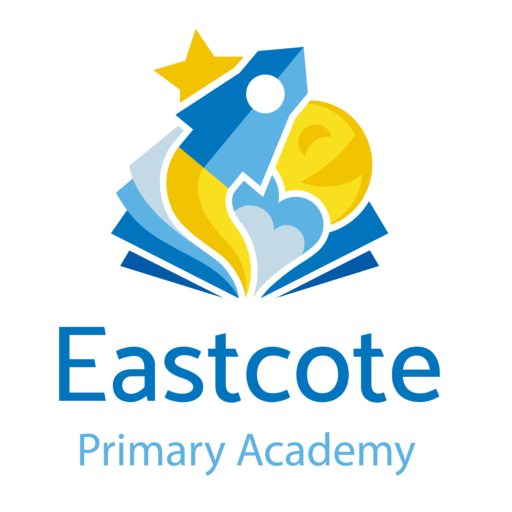At Eastcote Primary Academy we recognise reading as a vital life skill and the aim for all our pupils is to foster a love of reading. We encourage the children to read a diverse range of books by a wide variety of authors.
We seek to develop a strong reading culture through planned activities which promote reading as a positive experience. Each class has a reading area with a variety of books, added to this we have a school library which is constantly growing.
Through enrichment days such as World Book Day, children enjoy a variety of book-related fun activities including choosing a well-known book to decorate the classroom doors and dressing up as their favourite book character.
Sharing books and developing a love for books begins in Nursery, where children choose a book with their parents to take home and share together; this is done twice a week.
In school we follow the National Curriculum phonics programme “Letters and Sounds”, where children are taught the 44 phonemes that make up all the sounds required for reading and spelling. This is supported by the teaching of Jolly Phonics in Reception.
When children start school it is crucial that they develop phonic skills that allow them to, precisely and accurately, say the sound which each letter, or group of letters, makes. Thus the teaching of phonics is a high priority for all teachers, as it enables pupils to “decode” for reading and “encode” for spelling. Children have daily phonics sessions where they are introduced to new phonemes, can practice and revise previous learning and have plenty of opportunities to apply the knowledge they have.
We believe children are individuals and therefore we use reading materials from various different publishers. In both Key Stages books are colour-coded in order to ensure progression.
The Reading Scheme materials that we use in school include:
- Oxford Reading Tree
- Story World
- Ginn
- Song Bird (Phonic Books)
- For children who are competent readers, we encourage them to choose their own book.
In school, children read with an adult regularly. How this is done depends upon the age and ability of the child. The types of reading include individual reading, shared reading, guided reading and independent reading, as appropriate for the child, text and learning objectives.
In the Foundation Stage children’s reading is taught through the phonics. They experience a variety of text types and are encouraged to understand the elements of a story. Children sequence parts of a shared story and discuss what they know about the characters.
Throughout Key Stage 1 the children are encouraged to form an interest in and take pleasure from, a variety of text types. They are taught a range of strategies to decode words, with an emphasis on phonological knowledge and word building skills. The children are encouraged to express their opinions about the books they read, giving reasons for their answers and indicate their comprehension of texts through adult questioning and group discussion.
As children progress, they will deepen their understanding of the meaning of the text, rather than simply knowing how to link the letters into sounds and pronounce words. When the children are old enough they begin to participate in Guided Reading. This starts as a continuation of the teaching of how to decode unfamiliar words using phonic skills and quickly moves on to discussing the understanding of the text. During Year 2 children are introduced to higher order reading skills in Guided Reading sessions such as inference and deduction.
Children learn best when home and school work together. Parents are encouraged to hear their children read regularly at home. Parents and children can spend time enjoying a book together; not simply decoding words but discussing the text and checking a child’s understanding. This will enhance the child’s love of reading and improve their own writing too.


